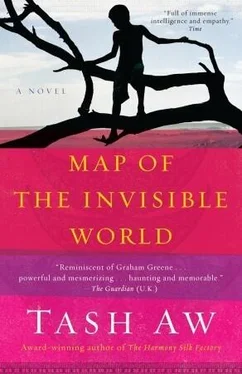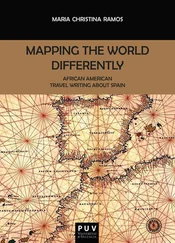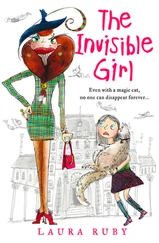Tash Aw - Map of the Invisible World
Здесь есть возможность читать онлайн «Tash Aw - Map of the Invisible World» — ознакомительный отрывок электронной книги совершенно бесплатно, а после прочтения отрывка купить полную версию. В некоторых случаях можно слушать аудио, скачать через торрент в формате fb2 и присутствует краткое содержание. Год выпуска: 2010, Издательство: Spiegel & Grau, Жанр: Современная проза, на английском языке. Описание произведения, (предисловие) а так же отзывы посетителей доступны на портале библиотеки ЛибКат.
- Название:Map of the Invisible World
- Автор:
- Издательство:Spiegel & Grau
- Жанр:
- Год:2010
- ISBN:нет данных
- Рейтинг книги:4 / 5. Голосов: 1
-
Избранное:Добавить в избранное
- Отзывы:
-
Ваша оценка:
- 80
- 1
- 2
- 3
- 4
- 5
Map of the Invisible World: краткое содержание, описание и аннотация
Предлагаем к чтению аннотацию, описание, краткое содержание или предисловие (зависит от того, что написал сам автор книги «Map of the Invisible World»). Если вы не нашли необходимую информацию о книге — напишите в комментариях, мы постараемся отыскать её.
comes an enthralling novel that evokes an exotic yet turbulent place and time—1960s Indonesia during President Sukarno’s drive to purge the country of its colonial past. A page-turning story,
follows the journeys of two brothers and an American woman who are indelibly marked by the past — and swept up in the tides of history.
Map of the Invisible World — читать онлайн ознакомительный отрывок
Ниже представлен текст книги, разбитый по страницам. Система сохранения места последней прочитанной страницы, позволяет с удобством читать онлайн бесплатно книгу «Map of the Invisible World», без необходимости каждый раз заново искать на чём Вы остановились. Поставьте закладку, и сможете в любой момент перейти на страницу, на которой закончили чтение.
Интервал:
Закладка:
“We’ll get him, don’t worry. Uncle Sam may no longer be valuable to the president, but he still has enough influence at lowly police stations. My contacts have got your Maluddin guy well covered. As soon as they get him, they’ll find the boy too. I’m sorry about Karl, but he just slipped away from that hospital, and I can’t trace him. Zero. But the boy, I know we’ll find him.” He reached out and touched her, his fingers trying to encircle her wrist. “I promise, Margaret.”
Margaret shook her head and pulled away slightly. “I told you, Bill, I don’t know anyone anymore. When I was more, I don’t know, in love with this country — yes, I knew how people thought, how they felt and spoke. Sometimes I used to think I knew how they dreamed. For the longest time my dreams were only in Indonesian and I thought, I’m one of them. But now I don’t really have dreams, and when I do I see my mother, god help me. I’m of no use to you or the United States, Bill.”
“It’s not a question of use, Margaret, you’re not an instrument of the state.” He reached out and touched her arm again. “I’m asking you to help me as a friend. Yeah, sure, there’s all that governmental bullshit at stake, but you know this painting is worth sticking your neck out for. It belongs here, in this country. I’m going to find that boy even if you don’t help me. It’s not a quid pro quo thing. This isn’t an official request, it’s a personal one. What I need is someone charming and sensitive to help me through this minefield. If I go in there myself — if they let me in — and I say something wrong, I’ll be dead in three seconds.”
“I’ve only met the president a couple of times.”
“But he remembered you. He asked me about you once. ‘What happened to that charming administrator with the Ford Foundation? She was so very nice, and she could speak Javanese too. Amazing.’ That’s what he said, I swear. If you appear at the palace, I guarantee he’ll see us.”
Mick looked up. He held the magnifying glass in the air as if it were a sign. “I think it’s a great idea. Margaret can definitely do it. She’s got everything it takes. I’ll come as backup, if you need me. I can be your bodyguard or chauffeur, anything you please.”
Margaret shook her head but she knew that all her nonverbal signs were communicating acquiescence. She thought of her early days in this city, when a problem such as this one would have seemed perfectly normal, barely even an adventure, merely something to talk about over dinner the next day. Oh, I smuggled a painting into the palace today; hey, you didn’t tell me you were negotiating an arms deal; did you know so-and-so is actually screwing General Whatshisname? It seemed to be like that every day. She recalled how she had been, rampaging fearlessly through the city as if it were hers to conquer; she could not say at what point she had realized that it was the city that had conquered her, not the other way around.
“It won’t work,” she said.
There was unanimous dismay; Bill and Mick both protested.
“Your plan just isn’t logical, Bill,” she insisted. She was sure of this now. She was older, and more afraid, but age and fear also made her confident of certain things. “From what I understand, you’re persona non grata at the palace. You have to keep out of it. Fix everything for me, make whatever phone calls you need to get me through the gates. I’ll go on my own.”
“No way,” Mick said. “Absolutely no way. I’m going to come with you.”
“You don’t understand. They aren’t going to hurt a single, unarmed woman. The moment a macho white guy appears it changes the dynamics completely. I’ll unnerve them — which is the point of the exercise — but I won’t threaten them. It’s all to do with the way Asian men see white women, and the way men communicate with other men. Don’t look so skeptical. Trust me. I’m sure of it.”
THE FIRST TIME Margaret saw the palace she had been overwhelmed — by its imposing portico, by the white columns thicker than tree trunks, by the great glass-and-bronze lanterns that hung from the ceiling, and most of all by the smell of the place, the faintest aroma of soil and crushed vegetation intermingling with old cooking grease to produce a perfume that was perfectly Asian — powerful but not at all unpleasant. She had been overwhelmed too by the emotion of seeing the red and white flag everywhere she looked — in proud rows on the lawn, suspended between columns, draped across tables, as though staking a claim on the building. The red of the flag was deep and angry, like freshly spilled blood. She had been dismayed to have missed the formal ceremonies that marked the recognition of the new republic by the Western world; it irked her to think that she had been in Paris, pining after a lost love that had never even been articulated in the first place (really, how silly), when she could have been here, witnessing the official birth of the nation. It felt to her as though she had been left out of the creation of something that she was a part of, something that was a part of her. She would never be so foolish again. And so she made sure that she was there, milling among the crowds the following year during the first Independence Day celebrations. A few years passed before she was invited into the palace that first time (for an official reception of American educators and academics, though the pretext barely mattered to her), and she was overjoyed to find that this occasion too was overwhelming. She had remembered feeling perfectly at home there, enjoying the looks of envy and suspicion from her compatriots as she chattered merrily away in Indonesian with government officials, and even flirted with an air force general.
Now, passing through the metal and barbed-wire barricades and the heavy gates, the palace again seemed overwhelming, not because of its size or its smell, but because its foreignness was intimidating: She realized she had never really known it at all. It still seemed monumental and noble, but now it also felt forbidding, as if there were a strict set of rules — STOP, do not proceed, SLOW, THIS WAY, remove crash helmet and sunglasses, do not cross, do not speak, do not smile — that she had somehow managed to ignore during previous visits. It was no longer a huge playground full of adventure but a place where the obstacles were all too real. Her driver did not turn around to look at her, nor did he wish her good luck or even good-bye as she got out of the car; he simply stared straight ahead, hands on the steering wheel, and drove away as soon as Margaret swung the door shut, leaving her marooned at the foot of the steps leading up to the immense porch.
A man in a dove gray suit came to meet her. The suit was too big for him and hung off his shoulders, making him look smaller than he was. He did not extend his hand for Margaret to shake but waved it gracefully to show Margaret the way. He kept half a step ahead of her, making sure there was always plenty of space between them. He wanted to remain aloof, she thought; his nonverbal communication was saying, “I really don’t want you here. You are a pain in the neck and we’re going to try to get this over and done with as quickly as possible.”
“Thank you for receiving me on such short notice,” she said. “I’ll try to be as quick as possible. You must be very busy. I really am sorry to trouble you.”
“Not at all,” the man said, and smiled. “We are in no hurry. You’re very welcome here.”
That was the way Asians said, You’re really getting on my nerves now. At least she knew that.
Everywhere she looked, Margaret saw soldiers manning doors or marching briskly along the edges of the lawns in pairs or tightly knit groups. Older men in military uniform walked along the hallways and disappeared silently into half-open doorways. Some of them looked briefly at Margaret but no one so much as nodded in acknowledgment. She found herself being led through a lavish reception room, her feet sinking into a plush carpet. There were a few armchairs covered in gold damask and a round table with a marble top and gilded, carved legs. On one wall hung a large mirror, also carved and gilded; everything in the room seemed to be carved and gilded; on another wall a row of photographs in (gilded) frames showed the president on Independence Day, leaner than he was now, and fresher looking, Margaret thought; back in those days he was still more of a revolutionary, less of a hardened statesman. She felt a sudden frisson of excitement, a quick, thrilling shudder as she recalled the atmosphere of those dreamlike days when the future of the country had seemed clear and full of possibility. She remembered the collective anger over New Guinea, the indignation she herself had felt when Holland refused to hand it back to Indonesia, viewing it as a personal slight, as if the Dutch had taken something from her own home and refused to give it back. When the president declared Indonesia’s intention to take back Papua, she had seen it as the righting of a wrong.
Читать дальшеИнтервал:
Закладка:
Похожие книги на «Map of the Invisible World»
Представляем Вашему вниманию похожие книги на «Map of the Invisible World» списком для выбора. Мы отобрали схожую по названию и смыслу литературу в надежде предоставить читателям больше вариантов отыскать новые, интересные, ещё непрочитанные произведения.
Обсуждение, отзывы о книге «Map of the Invisible World» и просто собственные мнения читателей. Оставьте ваши комментарии, напишите, что Вы думаете о произведении, его смысле или главных героях. Укажите что конкретно понравилось, а что нет, и почему Вы так считаете.












